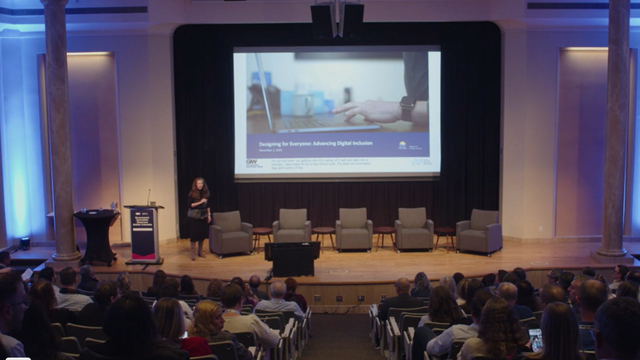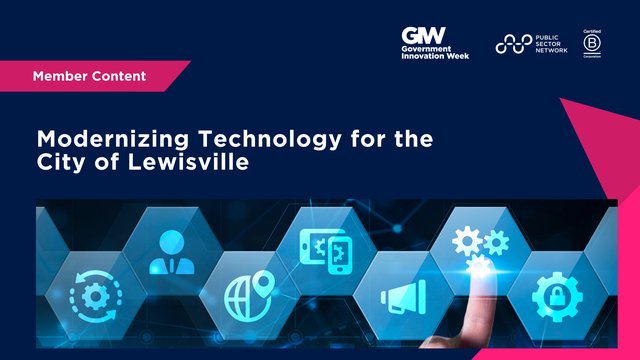

Show Notes
Quick Facts
The Magistrates Court of Victoria (MCV) is a vital component of the Victorian justice system, and it:
- Operates from 51 locations across 13 regions in Victoria
- Delivers about 93% of all court matters in Victoria
- Delivers over 54,000 public services each month from the service center in Melbourne
The Challenge: Transforming Legacy into Leading-Edge
The MCV faced significant challenges as it sought to modernize its operations and improve service delivery. With the advent of digital technologies and increasing public expectations for more efficient and accessible court services, the MCV was confronted with the need to transform its traditional, paper-based processes into a more innovative, user-centered model.
The court's leadership recognized that these changes were necessary not only to improve efficiency but also to enhance the public’s experience and trust in the justice system.
The Vision: An Innovative, Accessible Court System
When the Honourable Justice Lisa Hannan, was appointed Chief Magistrate in late 2019, the MCV embarked on a journey to innovate and modernize its operations.
The court's vision was clear: to become an innovative and accessible court, delivering fair, transparent, and efficient justice.
This strategic vision introduced a focus on innovation and accessibility, which was previously not associated with courts, which were traditionally seen as conservative institutions resistant to change.
To achieve this vision, the MCV identified several key areas for transformation. First, the court sought to move away from its reliance on physical, in-person court hearings and embrace online hearings and digital service channels. This shift was particularly challenging given the court’s outdated legacy case management system, which was built in the mid-1980s and was not equipped to handle the volume and complexity of modern cases. The court also aimed to establish a central service support provision to streamline inquiries and administrative tasks, which were previously managed locally at each court building, leading to inefficiencies and long wait times for court users.
The key selling points of this strategy were the introduction of flexible service delivery options, such as online hearings, and the creation of a central service center to handle inquiries and administrative tasks. These innovations promised to enhance accessibility for court users, particularly those in regional areas or those who faced difficulties attending court in person. The strategy also included the development of a new case management system to replace the outdated legacy system, which would enable the court to manage cases more efficiently and leverage digital service opportunities.
Implementation: Adapting to Change Amidst Challenges
The implementation of the MCV’s digital transformation strategy was accelerated by the COVID-19 pandemic, which forced the court to adapt quickly to new service delivery methods. With public health restrictions limiting in-person gatherings, the MCV had to abandon its original plans and focus on sustaining service delivery through online means. In just eight weeks, the court stood up an online hearing capability, allowing judicial officers and court users to choose whether to attend hearings online or in person. This rapid shift to online hearings was particularly beneficial for family violence victims, who could now attend court from secure off-site locations without being in proximity to the respondent.
In addition to online hearings, the MCV established a central service center in Melbourne’s Central Business District (CBD) to handle inquiries and administrative tasks that did not require local court involvement. This service center supported all court venues and jurisdictions statewide, delivering over 54,000 public services each month. The implementation of this service center significantly reduced wait times for phone inquiries, with wait times dropping to less than one minute, and improved first-time resolution rates for inquiries to 90%.
The MCV also introduced a web chat service, becoming only the second jurisdiction in Australia to offer such a service. This was later enhanced with a chatbot virtual assistant in the criminal jurisdiction, providing immediate, standardized responses to common inquiries. These digital services reduced the need for human intervention in low-risk inquiries, allowing court staff to focus on more complex cases.
However, the implementation process was not without challenges. The court's reliance on an outdated case management system necessitated manual data entry and paper-based processes, which was labor-intensive and inefficient. To address this, the MCV planned to go live with a new case management system in the following year, which would transform case management, enhance visibility for stakeholders, and provide real-time data insights.
Another significant challenge was the disparate court procedure material, which was spread across different systems and not consistently maintained. To overcome this, the MCV introduced a knowledge management system, rated as the number one global management platform by Gartner. This system consolidated over 1,200 best practice court operating procedures, making them accessible to all staff statewide with a click of a button. This not only improved the accuracy and consistency of procedure advice but also enhanced the induction and operational proficiency of new court staff.
Outcome: A Transformed Court Experience
The MCV's digital transformation efforts yielded significant outcomes, both in terms of operational efficiency and user satisfaction. The establishment of the central service center and the introduction of online hearings and digital service channels transformed the way the court operated and interacted with the public.
One of the most notable outcomes was the dramatic improvement in service delivery metrics. The service center’s ability to handle over 54,000 inquiries per month with a phone wait time of less than one minute and a 90% first-time resolution rate marked a significant enhancement in user experience. The court’s web chat service received a 93% good or great user satisfaction score, while the telephone service scored 92% good or great satisfaction. These results highlighted the success of the MCV’s efforts to innovate and improve accessibility for court users.
The court’s achievements were recognized by the Institute of Public Administration Australia, which awarded the MCV the Citizen-Centered Service Design in the Public Sector award. This accolade was particularly significant for a court, an institution not traditionally associated with public sector innovation. The award acknowledged the MCV’s service center as an exemplar of innovation, demonstrable impact, and inspirational delivery for the public sector and the Victorian community.
The introduction of the knowledge management system also had a profound impact on the court's operations. In its first year, staff accessed best practice court procedures over 110,000 times, significantly enhancing the consistency and accuracy of service delivery across the state. The system also streamlined the induction process for new staff, allowing them to become operationally proficient within just three weeks, even in highly specialized roles.
Future Implications: Paving the Way for Continued Innovation
The MCV’s successful digital transformation marks the beginning of a new era for the court, with far-reaching implications for its future operations. The upcoming launch of the new case management system will further enhance the court’s ability to manage cases efficiently and leverage digital service opportunities. This system will provide a foundation for continued innovation, enabling the court to explore new digital solutions and improve the court user experience.
One of the key areas for future development is the enhancement of the court’s online service presence. The MCV plans to harness the capabilities of its new case management system to build a digital counter, allowing court users to engage with the court online in much the same way they would in person. This digital counter will offer self-service capabilities, particularly for low-risk, low-complexity matters, freeing up in-person support for those with more complex needs.
The court also aims to introduce guided digital pathways, which will demystify the court process for first-time users and reduce the cognitive load on those attending court. These pathways will use human-centered design principles to ensure that court users are adequately prepared for their hearings, reducing the number of adjournments caused by unprepared parties.
While the MCV recognizes that digital solutions may not suit all court users, the introduction of opt-in self-service capabilities will create capacity for in-person support to be directed towards those who need it most. By continuing to innovate and embrace digital technologies, the MCV is well-positioned to meet the evolving needs of the Victorian community and uphold its commitment to delivering fair, transparent, and efficient justice.
Looking Forward
The Magistrates Court of Victoria’s digital transformation journey demonstrates the power of innovation in modernizing public institutions. Through strategic leadership, the adoption of new technologies, and a commitment to user-centered service design, the MCV has successfully enhanced its operations and improved the court experience for thousands of Victorians. As the court continues to build on these achievements, it stands as a model for other institutions seeking to adapt to the demands of the digital age while maintaining the highest standards of justice and integrity.
Speaker
Richard Hodge, Director, Innovation & Service Experience, Magistrates’ Court of Victoria





























